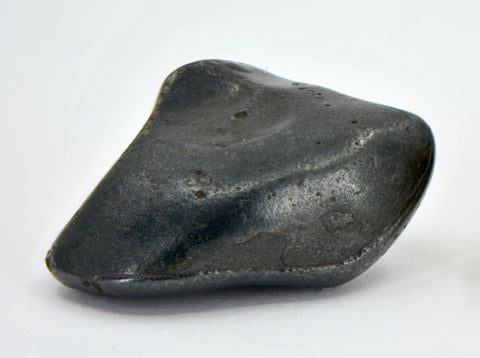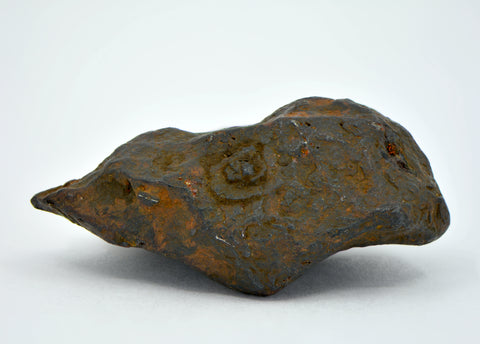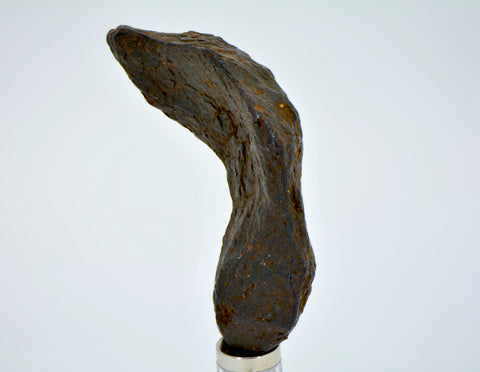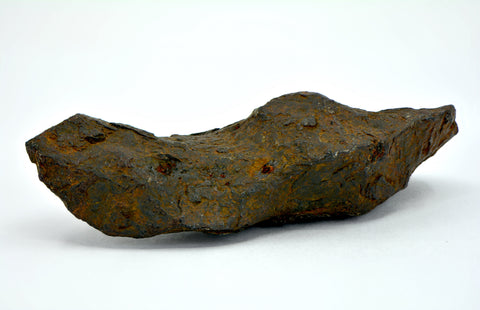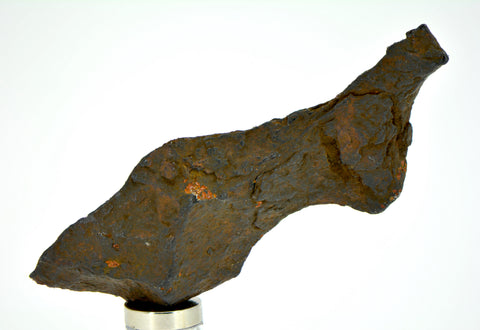Agoudal 31°59.074’N, 5°30.917’W
Centre-South, Morocco
Found: 2000
Classification: Iron meteorite (IIAB)
History: (H. Chennaoui Aoudjehane, M. Aboulahris, FSAC) Two small pieces of iron were collected in 2000 in the Agoudal area, High Atlas Mountains, Morocco, and sold to tourists. In September 2011, one piece was sold to a dealer in Errich, who recognized it as an iron meteorite. During the last months of 2012, systematic searching by meteorite hunters with metal detectors resulted in the discovery of a large number of meteorites, mostly small. Many pieces were collected on the surface or buried a few cm deep. The largest piece recovered was 60 kg, buried ~50 cm below the surface. On 9 February 2013, H. Chennaoui Aoudjehane, M. Aoudjehane and M. Aboulahris collected 200 g of specimens; the listed coordinates are those of the largest piece they recovered. The strewnfield is not yet clearly defined.
Physical characteristics: Total mass is >100 kg. Hundreds of small pieces (1-100 g), many 100-1000 g, and a few pieces >1 kg, have been recovered. The majority of collected material occurs as 2-5 cm, irregularly shaped shrapnel pieces. Most pieces have a thin weathering rind. Some smaller bullet-shaped (~cm-sized) fragments are rounded, showing well-developed fusion crust.
Petrography: (L. Garvie, ASU) Decimeter-sized pieces show a coarse pattern of irregular, interlocking kamacite grains; some grains with sub-boundaries. Widmanstätten pattern not evident in the small sections studied. Grain boundaries commonly curved. Etched pieces range from shiny with well-developed Neumann bands, to pieces with a matte appearance, typical of the hatched ε-structure. The shock-hatched regions show incipient recrystallization, with secondary growth of irregularly-shaped (to 1 mm) kamacite. No plessite observed. Schreibersite abundant occurring as cm-sized skeletal crystals at the centers of kamacite crystals, as rhabdites, and as a grain boundary precipitate. Rhabdites locally numerous as sharp, 10-25 μm faceted prisms. Scattered troilite nodules, to 1 cm. Troilite not surrounded by schreibersite, but instead large skeletal schreibersite is situated a few mm away. Heat-affected zone visible on some stones. Several of the smaller pieces, and especially the rounded bullet-shaped stones, have fusion crust and heated-affected zone of varying thickness; some completely recrystallized.
Geochemistry: (C. Herd and G. Chen, UAb): ICP-MS data, Ni 5.5 wt%, Co 4.1 mg/g, Ga 58 μg/g, Ir < 0.04="" μg/g="" and="" au="" ~="" 1="">
Classification: Iron, IIAB. Structurally similar to Ainsworth.
Specimens: Type specimens include 2406 g, ASU; 17.5 g, UAb; 200 g, FSAC
Other names: This meteorite has been sold and traded under the name "Imilchil"


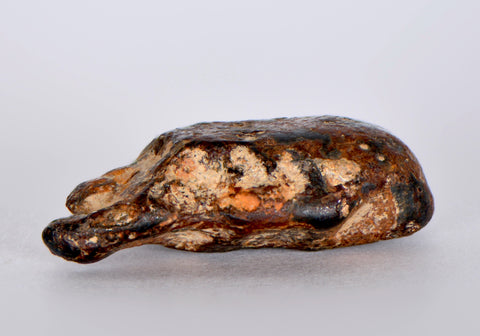







 100 kg
100 kg